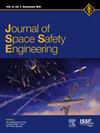SPACE and the return of Rome
IF 1.7
Q3 ENGINEERING, AEROSPACE
引用次数: 0
Abstract
Rapid development and increased human impact in outer space has necessitated space sustainability strategies. To protect the continued use of outer space and celestial bodies, policy makers and scholars have proposed and attempted to manage the domain through a variety of mechanisms e.g. treaty formulation, cooperative engagement/assertion, adherence to the Common Heritage of Mankind principle (CHM) and International Law. However, despite nearly 65 years of space activity, questions about how the domain is defined and how sovereignty is applied remain, with commonly used terms being controversial and imprecise. By examining fundamental concepts and early legal principles applied to modern shared resources, we can better understand both the essential attributes and development of the space domain. We assert that the principles of res nullius and res communis can be used to both define shared resource domains and measure their operational development. We understand these principles not as distinct categories, but as a continuum, upon which all shared resource domains lie, thus presenting an alternative framework for describing the shared domain.
空间与罗马的回归
快速发展和人类对外层空间的影响日益增加,使空间可持续性战略成为必要。为了保护外层空间和天体的持续使用,政策制定者和学者们提出并试图通过各种机制来管理这一领域,例如制定条约、合作参与/主张、遵守人类共同遗产原则和国际法。然而,尽管有近65年的空间活动,关于如何定义领域和如何行使主权的问题仍然存在,常用的术语存在争议和不精确。通过研究适用于现代共享资源的基本概念和早期法律原则,我们可以更好地理解空间领域的本质属性和发展。我们认为,无主原则和公有原则既可以用来定义共享资源领域,也可以用来衡量它们的运营发展。我们不把这些原则理解为不同的类别,而是作为一个连续体,所有共享资源领域都在其上,因此提出了描述共享领域的另一种框架。
本文章由计算机程序翻译,如有差异,请以英文原文为准。
求助全文
约1分钟内获得全文
求助全文
来源期刊

Journal of Space Safety Engineering
Engineering-Safety, Risk, Reliability and Quality
CiteScore
2.50
自引率
0.00%
发文量
80
 求助内容:
求助内容: 应助结果提醒方式:
应助结果提醒方式:


